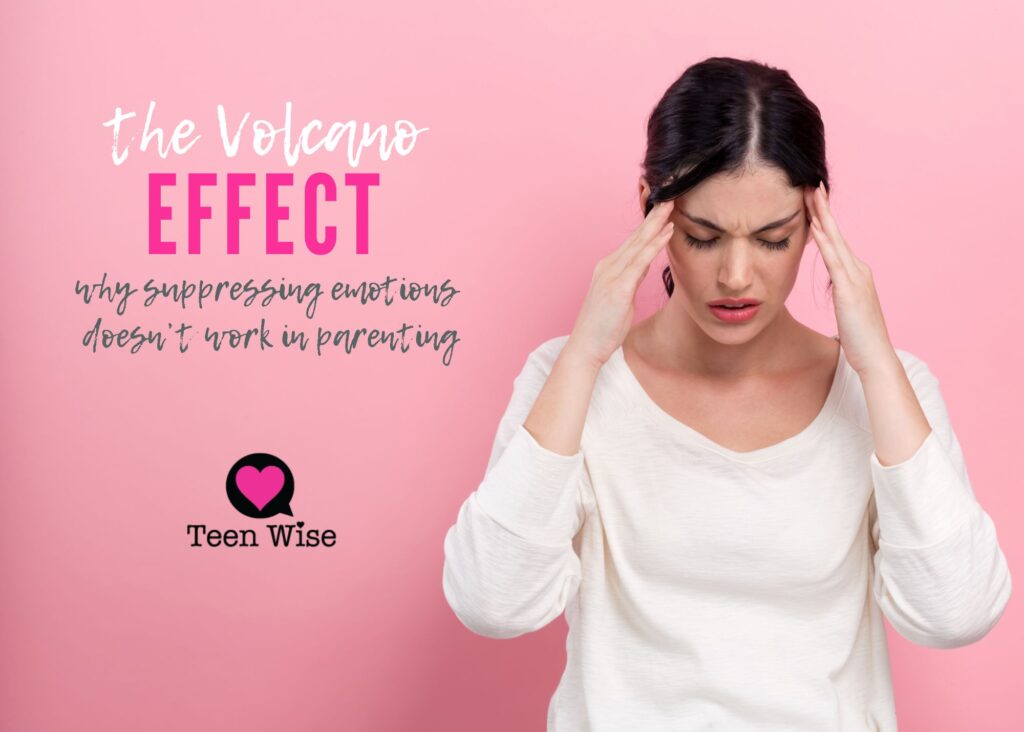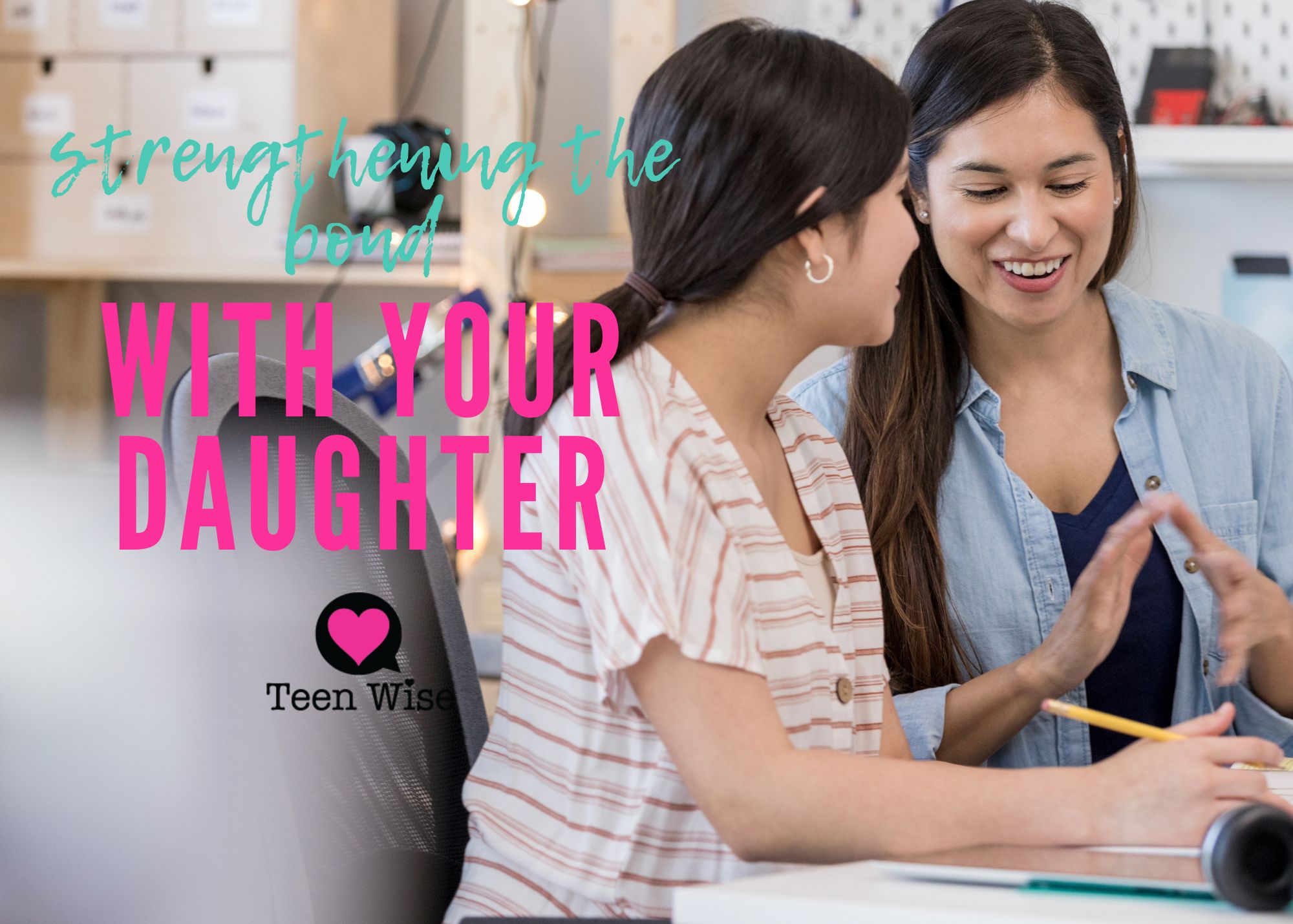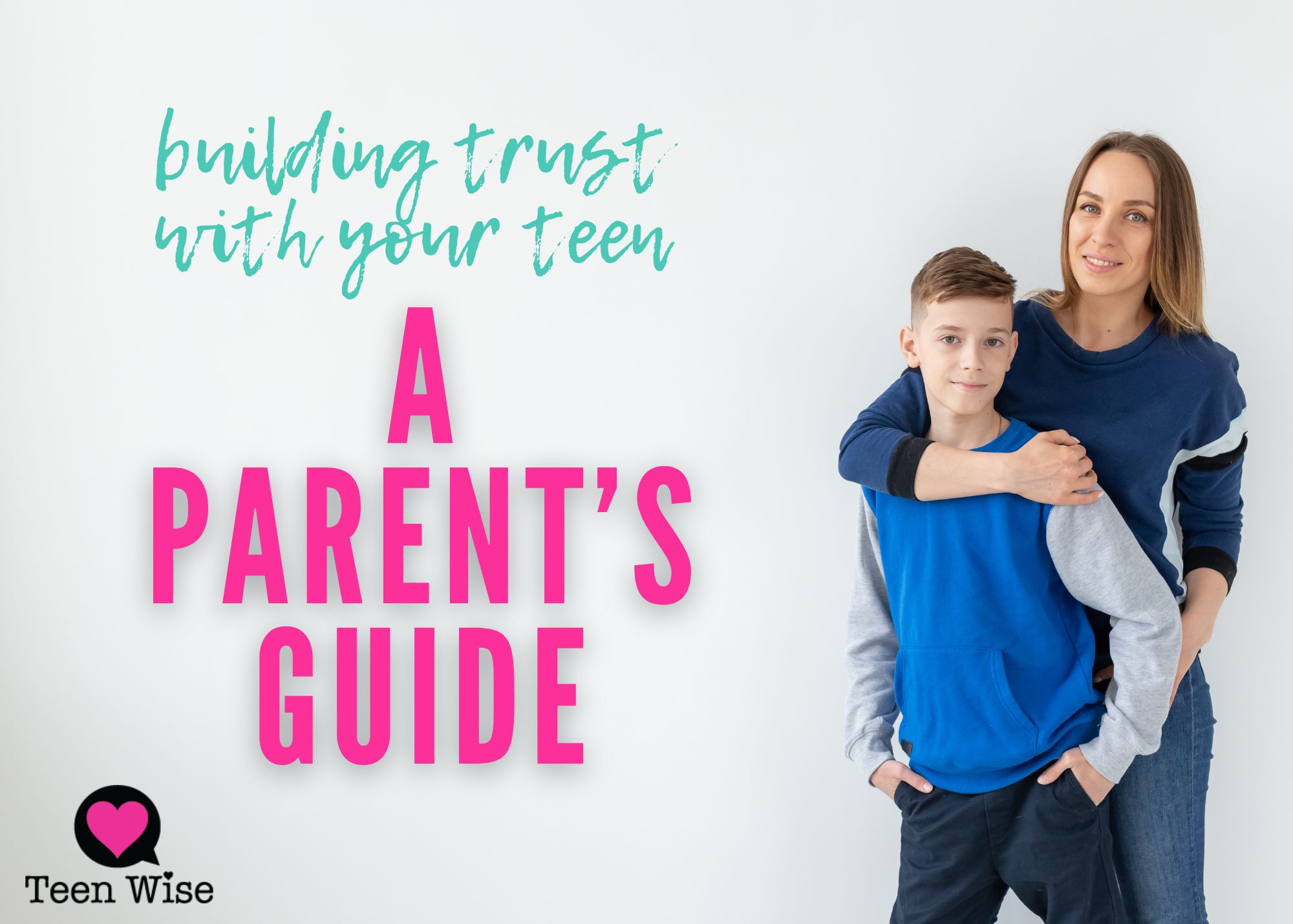You might find yourself saying, “I’m doing pretty good,” when asked how you’re coping. On the surface, everything seems fine. But beneath that calm exterior, a storm might be brewing. This is what I call the “volcano effect.”
What Is the Volcano Effect?
The volcano effect happens when you suppress your emotions and internal dialogue, keeping it all together until…you don’t. Like a volcano, the pressure builds as stressors pile up: kids not doing their homework, household chores left undone, or backtalk from your teen. You might tell yourself, “I’m not going to say anything. I’ll just deal with it.” But eventually, that pent-up frustration erupts, often in the form of an emotional outburst that leaves you and your daughter feeling worse.
Why Does This Happen?
The volcano effect stems from the belief that being a great parent means keeping your emotions to yourself. Many moms think, “If I just stay quiet, I won’t upset my kids.” But emotions and energy are intertwined, and suppressed feelings don’t just disappear. They build pressure. Eventually, like lava, they have to go somewhere.
The Window of Tolerance
The volcano effect is closely tied to the concept of the “window of tolerance.” This window represents the state where you feel calm, confident, and connected as a parent. When you’re within this window, you can handle stressors effectively. Your child’s backtalk? You calmly redirect. The undone chores? You confidently follow through on your expectations.
But when you’re outside your window of tolerance, that calm and connection are replaced by fight-or-flight reactions. You might find yourself snapping, yelling, or retreating. Staying within your window of tolerance requires a proactive approach to managing stress and maintaining emotional balance.
Breaking the Suppress-and-Explode Cycle
Parenting doesn’t have to be an all-or-nothing approach of staying silent or exploding. Instead, there’s a middle ground where you address your concerns in constructive ways. Here’s how to widen your window of tolerance and avoid volcanic eruptions:
- Use Systems: Create systems that reduce the need for constant reminders and nagging. For example, chore charts or family agreements can take the emotional charge out of getting things done.
- Communicate Mindfully: Address issues with your kids calmly and clearly. Instead of bottling up your frustrations, express them in ways that are firm but kind.
- Focus on Self-Care: Your window of tolerance shrinks when you’re stressed and overwhelmed. Prioritize activities that recharge you—whether it’s exercise, reading, or quiet time.
Reflecting on Your Reactions
When your window of tolerance is small, it’s easy to react emotionally rather than respond thoughtfully. Reactions are immediate and driven by frustration, while responses are intentional and grounded in awareness. To shift from reaction to response, take time to reflect:
- When do I feel most stressed or overwhelmed?
- What situations trigger volcanic reactions?
- How can I prepare to respond calmly instead of reacting emotionally?
A Challenge for Moms
I challenge you to reflect on your own volcano moments without judgment. Think about what narrows your window of tolerance and how you can widen it. Awareness is the first step toward change. By identifying your triggers and understanding your patterns, you gain the power to choose a different path.
From Volcano to Calm Lake
Parenting is a demanding job, but it’s possible to move from the volatility of a volcano to the steadiness of a calm lake. This doesn’t mean you won’t experience stress or frustration—you will. But by addressing your emotions proactively, practicing self-care, and staying mindful, you can create a more peaceful, connected relationship with your children.
So the next time you feel the pressure building, pause and reflect. You have the tools to choose calm over chaos. You’ve got this.
With Heart,
Coach Sheri







